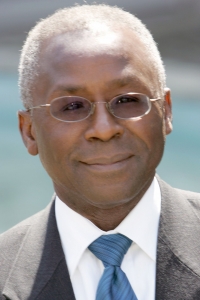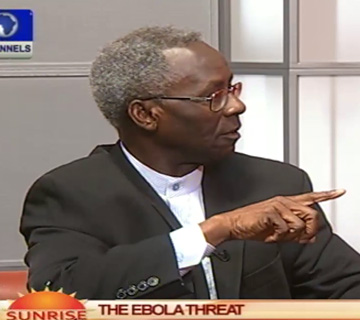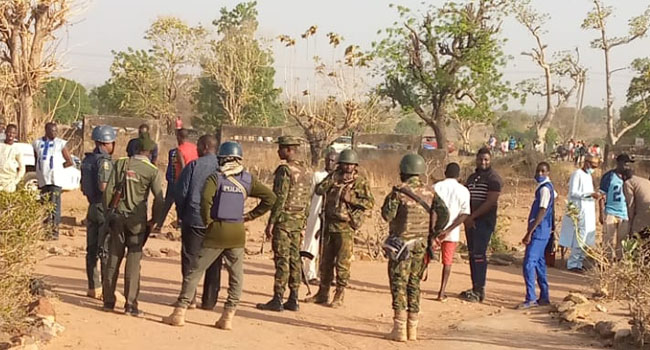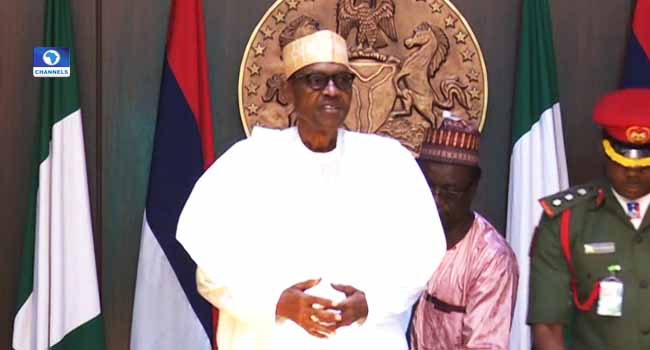
While admitting the deadliness of the disease, and acknowledging that the Nigerian Government has done well in managing it, he noted that there was need to do more in helping the people to douse the fears created by the disease, as this could be more dangerous.
He advised that reducing the level of panic across the country would be helped by the quality efforts put into the management of every case of fever in all hospitals across the country.
Prof. Tomori, who is also the President of the Nigerian Academy of Science, maintained that Ebola cannot be transmitted from a patient who hasn’t fallen sick but warned that this may not be applicable between couples and there was need for people to be supplied with information about such details.
The spread of the Ebola disease in West Africa has been quite rapid and considering that there had been an outbreak before in East Africa, which never escalated into an epidemic, Prof Tomori said that this can be blamed on the aggressive nature of the average West African who is less willing to adhere to instructions about his movement.
He recalled his experience during a similar outbreak in Uganda and DR Congo (former Zaire in East Africa) and how it was contained within two weeks, despite the situation looking gory as at when he arrived the country as an aid worker.
He noted that their governments came out and took action immediately and more importantly, the citizens were willing to listen and follow instructions given by health officials. He added that as long as the Ebola Virus Disease remains in other West African countries, Nigeria would be dreaming if it thinks the Ebola threat would be over by September 2014.
The index case of Patrick Sawyer came to the fore and the Prof. frowned at the manner in which Nigeria had been complacent in managing the information that was coming out of the initially affected countries. He said that Nigeria’s membership of the West African Health Organisation, WAHO was “only on paper, we have not really come to work together”.
He said that Nigeria should have been more proactive, because if the Nigerian embassies in these countries had been proactive, the entry of Sawyer into Nigeria could have been prevented.
The Ebola outbreak has changed the attitude of Nigerians to sanitation and personal hygiene and there are hopes that the new lifestyle would be maintained by many Nigerians and Prof Tomori shares same hopes but not without expressing doubts based on the Nigerian approach to challenges.
He said that he had noticed that once Nigeria overcomes a challenge it forgets about it until another problem comes. Therefore, institutionalizing these new personal and border hygiene practices would be the best way to approach things when the Ebola fight is over.
Prof. Tomori also said that Nigeria would need to do more in its border screening.
A special report by Channels Television had revealed how the screening at the Seme Border was being carried out and he referred to the structure as “a joke” adding that he expected Nigeria to set up its sanitary borders with military men to provide support.
The effectiveness of the drug, Zmapp, was also discussed. Prof Tomori said that the strength of the individual patient and the stage at which ZMapp was administered would determine how well it would work, as vital organs of the body must still be functioning well for ZMapp to be effective.
The possibility of an indigenous solution was also brought forward and Prof. Tomori said that indeed Nigerians have the human resources to develop a cure for Ebola with several brilliant persons in the health sector but the environment was not favourable.
The former Vice-Chancellor of the Redeemers’ University stressed the lack of consistent power supply, and the quality of communication services among the factors that would frustrate the idea of setting up a BSL-4 facility in Nigeria.
A biosafety level is a level of the biocontainment precautions required to isolate dangerous biological agents in an enclosed facility and Prof. Tomori stated that he would be reluctant to work in such a laboratory in Nigeria as it would be a risk of his life, except Nigeria improves on all the basic issues earlier mentioned.




